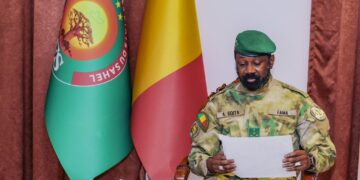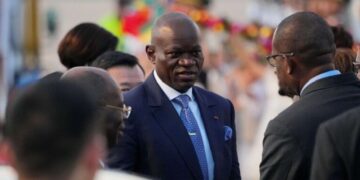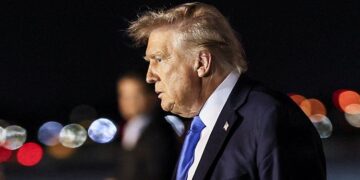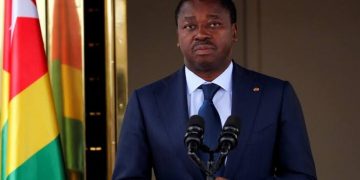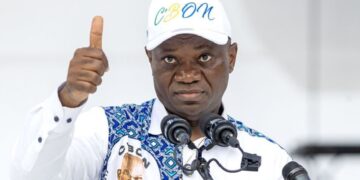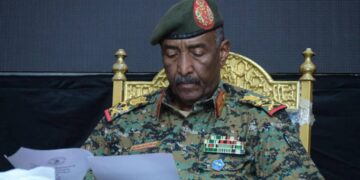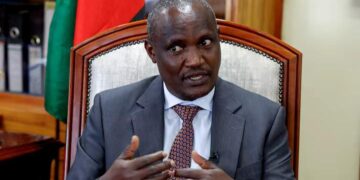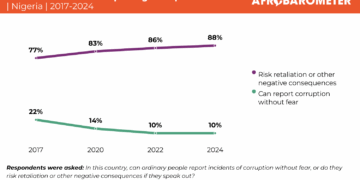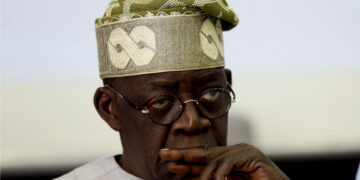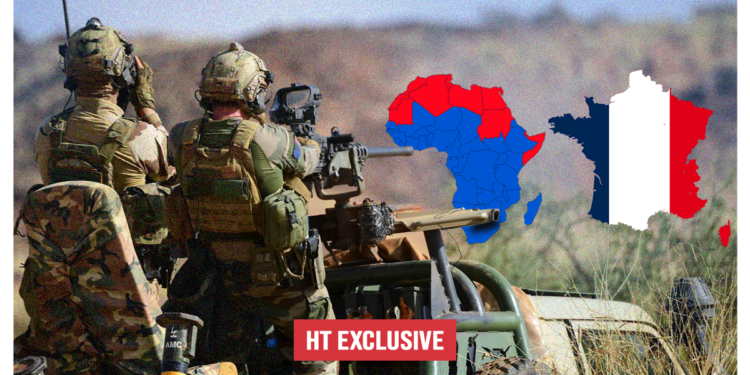By Emmanuel Nduka
For many years, French military forces have maintained a prominent presence in various African nations, particularly those in the West and Central African region, often in the name of counterterrorism, peacekeeping, and maybe historical ties.
But in recent years, the dynamics of these military engagements have drastically shifted. As political changes, regional instability, and anti-colonial sentiments surge, several African countries have taken decisive steps to expel French forces from their territories, marking a turning point in the continent’s relationship with its former colonial masters. There is a budding trend in Africa where countries are rethinking their relationships with former colonial powers, and the need to fully outgrow their friendly manipulation.
France’s approach to military cooperation in Africa is now at a crossroads. With the expulsion of French forces from military-led Mali, Burkina Faso, Niger, and Chad, the question remains whether France can continue its military presence in Africa or if a new approach will be considered. And just before France could heal from the disgraceful expulsions, Senegal and Ivory Coast kicked out the ‘Les Bleus’ from its territories.
As if he envisaged it early enough, in 2023, President Emmanuel Macron announced plans to transition away from permanent military bases in Africa and towards joint cooperation with African governments – a more flexible and cooperative mode of engagement. According to Macron, this shift could be the key to restoring trust with African nations while maintaining France’s ability to respond to regional security challenges.
While France’s military influence in the Sahel has diminished, its forces are still present in countries like Cameroon, Gabon, and Djibouti. But even in these nations, the political landscape is kaleidoscopic, and it is becoming increasingly clear that foreign military presence may no longer be needed. Djibouti currently hosts France’s largest military base in Africa (1,500 troops), and it remains its long-standing strategic base for French operations across the Horn of Africa. Despite growing anti-French sentiment in other parts of Africa, Djibouti has maintained strong ties with France, with no indication yet that this relationship will change in the immediate future.
As the geopolitical situation in the Horn of Africa evolves, France’s base in Djibouti will continue to be a key asset for regional security. However, it is important to note that the political climate in the region is volatile, and France must remain responsive to the needs and concerns of its African partners beyond sustaining its military bases. France has now been kicked out of at least 70 percent of African countries where it had a military presence since ending its colonial rule.
How Did France’s Relationship With The Sahel Turn Toxic?
Mali positioned itself as the catalyst for change. Led by Col. Assimi Goita, Mali was one of the first countries in the Sahel to expel French troops. For at least a decade, French forces had been a key component of the international response to jihadist insurgencies in the region, primarily through ‘Operation Barkhane’, a counterterrorism mission that began in 2014. Mali’s request for French assistance was initially welcomed, but relations soured following a military coup in 2021, and tensions between the Malian junta and France rapidly escalated.
Fast forward to 2022, the situation became untenable. The French government announced the withdrawal of its forces, marking the end of its military intervention in Mali. The expulsion of French troops was emblematic of the growing sentiment against foreign military presence in the region. As Mali navigated its new military leadership, the government sought to regain control over its security policies without foreign influence, not even from its French colonial masters.
The consequences of this decision were far-reaching. France, once seen as a stabilizing force in the region, faced a significant blow to its influence in West Africa. While some factions within Mali still advocated for continued cooperation with France, the broader population and government leaned toward asserting greater autonomy.
In Burkina Faso, another blow was dealt to French interests. Burkina Faso followed Mali’s lead in expelling French troops in early 2023. Like Mali, Burkina Faso had been a host for French forces as part of regional counterterrorism efforts aimed at curbing jihadist activity. But after a military coup in 2022, tensions between the country’s new leadership and France intensified.
The government of Burkina Faso, led by Capt. Ibrahim Traore’s military junta, accused France of failing to provide adequate security in the face of growing insurgencies and increasing jihadist violence. This sense of betrayal, combined with anti-French sentiment, led to the expulsion of French forces. The decision underscored a broader shift in Africa’s approach to foreign military presence, with an increasing number of countries questioning the effectiveness of Western-led interventions.
In September 2023, thousands of Nigeriens protested in Niamey, demanding the withdrawal of French troops. They accused Paris of “blatant interference” by backing the country’s ousted President Mohammed Bazoum. While Niger was a longtime strategic partner for France in the Sahel region, rising public dissatisfaction with French intervention, coupled with the increasing strength of jihadist groups in the region, led to the withdrawal of French troops in late 2023.
In an end to Chad’s historic alliance with France, French troops also stationed in Chad under Operation Barkhane were green-lighted to leave. In late 2023, Chad announced the termination of its defense agreement with France. This move was also a direct response to the growing discontent with foreign military presence in the region. Towards the end of 2024, the termination of the defense agreement between the two countries was enforced, leading to the exodus of French troops from Chad, representing a significant fracture in the longstanding military partnership between the two nations.
Senegal and France are the latest African brides to slap divorce papers on Macron’s gloomy face. In November 2024, Senegal, a country booming with French-owned businesses and nationals, asked French troops to prepare to exit. President Diomaye Faye announced that France should shut down its military bases and asked Paris to remove some 350 French troops stationed in Senegalese territory, effectively ending a defense pact that had existed for decades and continuing the trend across Western Africa. “Senegal is an independent country, it is a sovereign country and sovereignty does not accept the presence of military bases in a sovereign country,” Faye said last November while speaking from the presidential palace in Dakar, but did not give a deadline for when the troops will be pulled out.
In his own wisdom, Ivorian President Alassane Ouattara said the pullout of French forces would begin in January 2025. France has as many as 600 troops stationed in Ivory Coast. “We have decided on the concerted and organized withdrawal of French forces in Ivory Coast,” Ouattara said, adding that the military infantry battalion of Port Bouet that is run by the French army will be handed over to Ivorian troops.
And as France faces the expulsion of its forces from several countries in West Africa, the question arises: What does the future hold for French military presence across the continent in 2025 and beyond?
In Central Africa, French military bases in Cameroon and Gabon continue to serve as critical components of France’s regional security strategy. Both countries still host French forces for counterterrorism, peacekeeping, and training operations. Despite growing regional tensions, these countries have chosen to maintain strong ties with France.
As other African nations reconsider their relationships with foreign powers, the status of French forces in Cameroon and Gabon could come under increasing scrutiny, analysts have predicted. The political climate in both countries is fluid, and any shift in leadership could lead to changes in their approach to foreign military presence.
The future of French military presence in Africa will depend on the ability of both France and African countries to build new, mutually beneficial partnerships that respect national sovereignty while addressing shared security concerns.
This escalating trend signals a fundamental change in Africa’s security landscape. As more African nations assert their sovereignty and push back against foreign military presence, France will have to adapt its approach to military cooperation in Africa.
The coming years will be critical in determining the future of foreign military deployments in Africa. As African countries assess their security needs and international partnerships, the role of foreign powers—particularly former colonial powers like France—will continue to evolve. Whether through increased self-reliance or new alliances, Africa is poised to chart its own path forward in terms of military cooperation, with 2025 marking the beginning of a new chapter in Africa’s geopolitical and security history.







